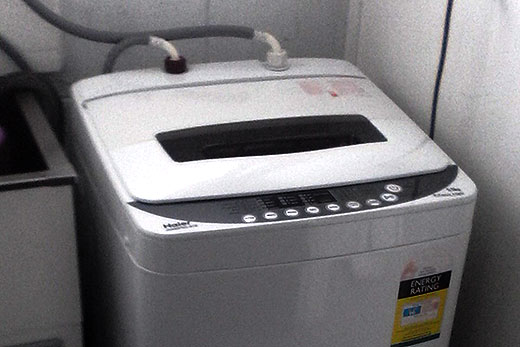Consumer watchdogs believe New Zealanders may be taken aback after they revealed the expected lifespan of some household appliances.
Consumer NZ was advising of the protections people have under the Consumer Guarantees Act (CGA) and that retailers need to ensure products sold are of acceptable quality.
Large kitchen appliances, such as dishwashers, fridges and freezers should last more than a decade, while ovens should last about 15 years.
Consumer head of test Dr Paul Smith says TVs should also provide people "with about eight years of quality viewing".
"The initial cost of the appliance, how much it's used and how well it's looked after, will impact how well the appliance performs and ultimately how long it will last."
Smith says extended warranties and care programmes are often "not worth the paper they're written on" because of the protections under the CGA.
Under the act, retailers must guarantee any product purchased for personal use was of acceptable quality.
This means the goods must do what they are made to do, have an acceptable appearance, be free from minor defects and be safe and durable.
"Appliances must last a reasonable length of time, but it is unrealistic to expect a product will be fault free."
Consumer NZ pinpointed "reasonable" as a key word for customers.
A retailer must put things right if a fault happens that a reasonable consumer would not expect to have occurred.
It did not matter that the manufacturer's warranty had lapsed.
"Don't be fobbed off by a retailer telling you it doesn't have to fix a faulty product because it's 'out of warranty'."
How long should your appliance last?
Consumer bases its life expectancy figures on mid-range appliances that receive reasonable use and care.
"If you buy a top-end brand or a budget option, you should adjust your expectations accordingly," says Smith.
A dishwasher should last about a decade.
"A dishwasher has a hard life; it tends to be used at least daily in most households.
"If you regularly clean your dishwasher and look after it well, it should serve you well in return.
"Manufacturers tend to hold onto spare parts for older models, so if your older appliance breaks down, repair should be an option."
Fridges, freezers and combo models should last about 11 years.
"Faulty thermostats and damaged door seals are worth replacing. However, if your appliance suffers a major fault after its 10th anniversary you should seriously consider a replacement."
Ovens and stoves should last about 15 years, and a microwave or benchtop oven would last about eight years.
"We recommend repairing your oven or stove until spare parts are hard to come by.
"Microwave repairs tend to be costly. Depending on how long you've had the microwave, you may be able to get it fixed under the CGA or manufacturer's warranty."
Broken oven doors, generally, can be repaired, blown thermostats and elements can be swapped out, but broken fans and electronic modules can be costly to fix.
People should get about a decade's use from washing machines and clothes dryers.
"If your washing machine pump gets blocked, you might be able to clear it yourself.
"If your machine's drum is playing up or something doesn't sound right, you should call an expert for a repair quote.
"If you opt for a new dryer, we recommend looking out for a model with a sensor - which will prevent you from over-drying clothes and wasting energy."
Stick vacuum cleaners are increasingly popular but tend to be outlived by their corded counterparts.
A cordless vac typically lasts about five years, compared to a corded model which was expected to last about eight years.
"You could reduce the life expectancy of a corded vac if you use it to suck up powder, like plaster dust.
"The most common faults with cordless vacs are related to the battery or charger - parts that are usually easy to replace."
A television should last people about eight years.
"Repairing an old TV can be complicated and costly," says Smith.
"You should expect the operating system of a smart TV to remain supported throughout the life of the TV."
However, some do report connection and application problems.
"We recommend bypassing the smart TV functions in favour of an external device, like a Chromecast."
Laptops and desktop computers should last about five years.
However, according to US consumer organisation Consumer Reports, about "one in three laptops" fails by its fourth year.
"Keeping your antivirus protection up to date will go some way to protecting your device from an early demise.
"If your device starts to fail after five years, it would probably be better to repair than replace."
The easier and cheaper a product was to repair, the longer it should last.
Consumer NZ is also calling for mandatory repairability labelling, similar to Energy Ratings, where a product's efficiency was disclosed.
It's aiming to present a petition around mandatory labels to Parliament, with its 15,000 signature goal, less than 10 signatures away as of Friday morning.



0 comments
Leave a Comment
You must be logged in to make a comment.